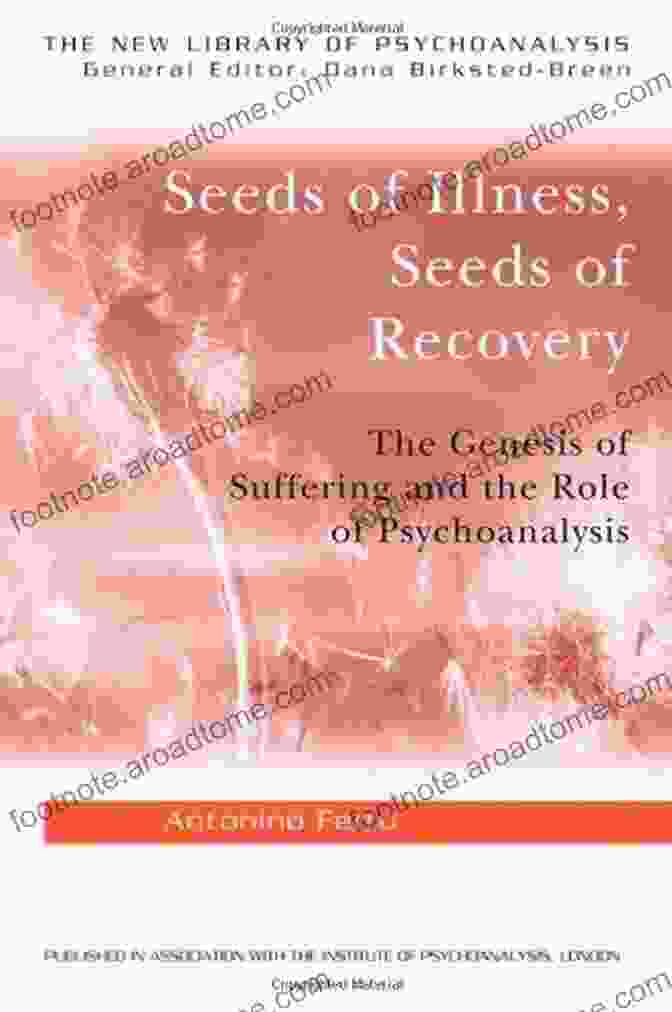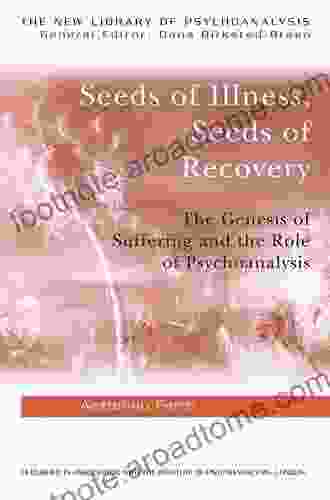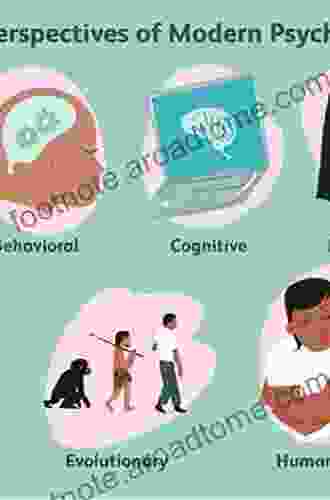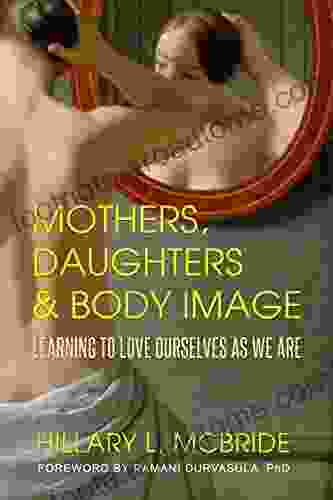The Genesis of Suffering and the Role of Psychoanalysis: A New Library of Insight

In the tapestry of human experience, suffering casts a long and pervasive shadow. Its presence has tormented individuals throughout history, leaving an indelible mark on our collective psyche. In his groundbreaking work, "The Genesis of Suffering and the Role of Psychoanalysis," renowned psychoanalyst Dr. Sigmund Freud delves into the profound depths of this enigmatic phenomenon, excavating its origins and illuminating its insidious impact.
4.2 out of 5
| Language | : | English |
| Text-to-Speech | : | Enabled |
| Enhanced typesetting | : | Enabled |
| Word Wise | : | Enabled |
| File size | : | 3477 KB |
| Screen Reader | : | Supported |
| Print length | : | 146 pages |
The Etiology of Suffering: Unveiling the Roots of Pain
Freud posits that suffering stems from a complex interplay between external stressors and our own internal psychic conflicts. External stressors, such as poverty, illness, and loss, can undoubtedly inflict immense pain. However, Freud contends that it is the way we respond to these stressors, shaped by our unconscious desires and conflicts, that ultimately determines the intensity and duration of our suffering.
According to Freud, two primary sources of suffering reside within our unconscious mind: the id and the superego. The id, driven by instinctual desires, seeks immediate gratification without regard for social norms or consequences. The superego, on the other hand, represents our conscience and moral compass, imposing ideals and prohibitions upon our behavior. When these two forces clash, conflict arises, leading to anxiety, guilt, and ultimately, suffering.
Psychoanalysis: A Path to Uncovering Unconscious Conflicts
Psychoanalysis emerged as Freud's revolutionary method for accessing the unconscious mind and unraveling the hidden dynamics that perpetuate suffering. Through free association, dream analysis, and transference, psychoanalysis provides a safe and guided space for individuals to explore their innermost thoughts, feelings, and desires.
By uncovering unconscious conflicts and bringing them to the surface, psychoanalysis aims to empower individuals with a deeper understanding of themselves and their motivations. Through this process, they can gain insight into their repetitive patterns of behavior and develop healthier coping mechanisms, thereby mitigating the hold that suffering has over their lives.
The Role of Psychoanalysis in Modern Society: Addressing Contemporary Pain Points
While Freud's theories were primarily developed in the context of the Victorian era, the principles of psychoanalysis remain profoundly relevant in contemporary society. Modern stressors, such as social isolation, technological addiction, and environmental degradation, can all contribute to feelings of anxiety, depression, and existential suffering.
Psychoanalysis offers a valuable framework for understanding and addressing these modern-day challenges. By delving into the unconscious mind, analysts can help individuals identify the underlying sources of their distress and develop strategies for coping with the complexities of the 21st century.
: A Testament to the Power of Insight
"The Genesis of Suffering and the Role of Psychoanalysis" is a seminal work that has profoundly shaped our understanding of human pain. By illuminating the intricate interplay between external stressors and unconscious conflicts, Freud provides a path toward alleviating suffering and promoting psychological well-being.
In an era marked by unprecedented levels of anxiety, depression, and societal turmoil, this book offers a timeless message of hope and healing. Through psychoanalysis, individuals can embark on a journey of self-discovery, unravel the mysteries of their unconscious mind, and ultimately emerge with a renewed sense of purpose, fulfillment, and freedom from the chains of suffering.


























































































